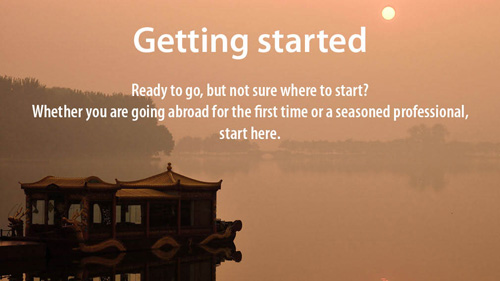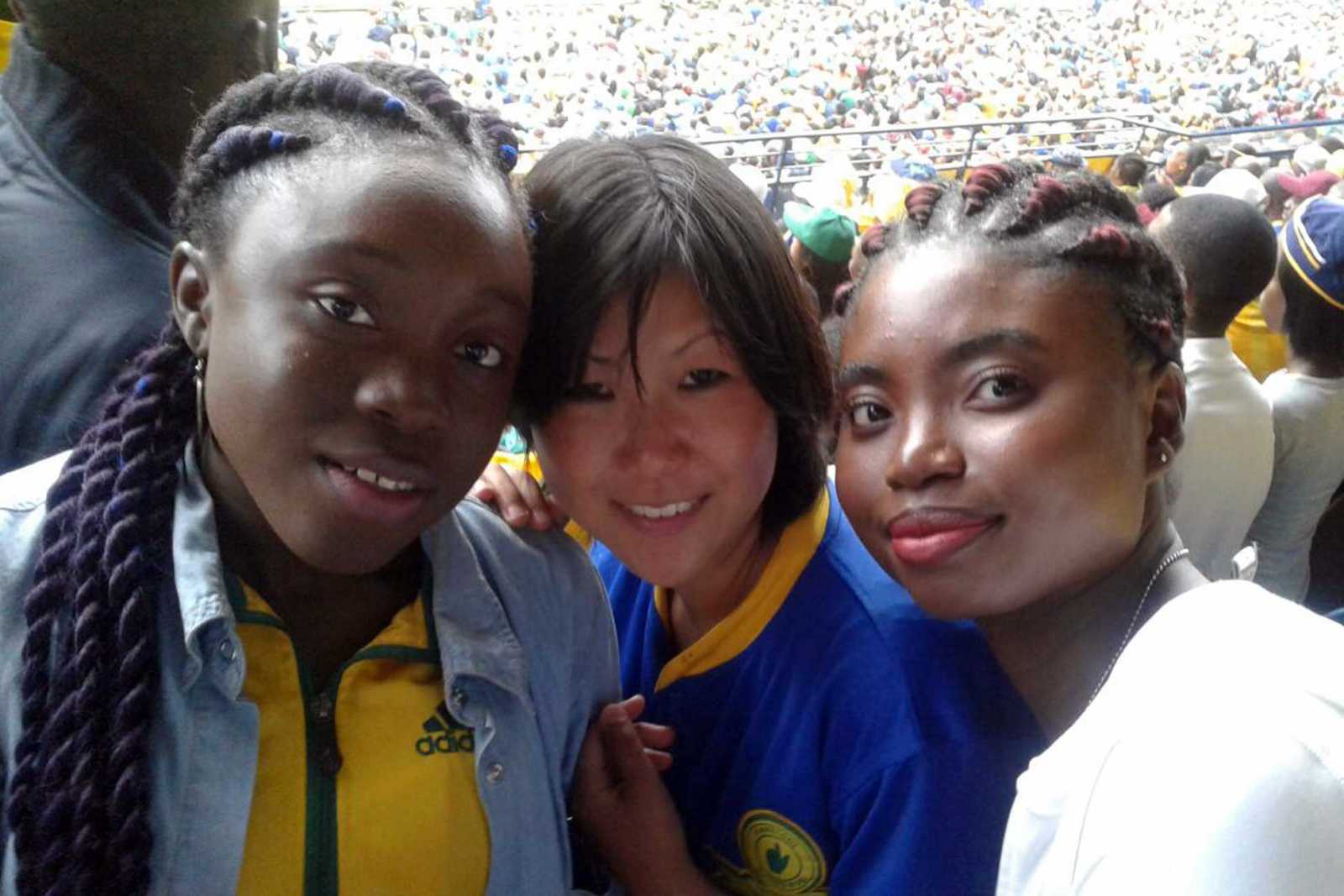- Name: Laura Faryna
- Age: 28
- Current location: Pretoria, South Africa
- Home town: Victoria, Canada
- Education: International Relations, BA, University of British Columbia, Canada; Juris Doctor, JD, University of Victoria, Canada
- Current position: Legal Advisor, Lawyers for Human Rights, South Africa (Young Lawyer’s International Program, Canadian Bar Association, funded by Global Affairs Canada)
- Bio: Laura Faryna grew up on the west coast of Canada and earned an undergraduate degree in International Relations at the University of British Columbia. She went on to study law and receive her Juris Doctor, J.D., at the University of Victoria. In 2015, Laura was selected by the Canadian Bar Association for the Young Lawyers International Program (YLIP). She was placed on a one-year internship to work with Lawyers for Human Rights, a non-profit legal aid organization based in Pretoria, South Africa. There, Laura represented the interests of individuals from Africa who were seeking refugee asylum in South Africa. Today she’s working for the Government of Northwest Territories as a Senior Legislative Advisor. Laura works in the field of public interest to address address equity, social justice and issues relating to policy and legislation.
- Countries I've worked in: Canada, Thailand, Myanmar, South Africa
- Sector / subsectors: Law, Human Rights, Refugees and Immigration
- Areas of expertise: Refugee and immigration law, Human rights law Policy and legislation
- Country: South Africa
- Region: Africa
- Sector: Law
- Degree subject: International relations, Law
Tell us about the organization you work for and your role there?
I was hired by the Canadian Bar Association (CBA) through their Young Lawyer’s International Program, funded by Global Affairs Canada, to work with a non-profit organization in South Africa: Lawyers for Human Rights (LHR). LHR has a long history in South Africa, working in the areas of human rights and public interest litigation. I worked there as a legal advisor for a Refugee and Migrant Rights program, which runs a legal clinic where people can access free legal services. It aims to support people who cannot afford legal services, or who face barriers to accessing justice. I was helping individuals, either refugees or asylum seekers, with the process of refugee determination – determining whether or not they were refugees – or helping them to access another right they were entitled to, but lacking access to.
Can you describe a day, or week in your working life to give us a better idea of what you do?
I was responsible for doing weekly intakes to consult with new clients and support their needs on an ongoing basis. Once a week, I would consult with 10 to 20 new clients, and then do file work on their issues and work to resolve them. I’d work on urgent cases by writing advocacy letters on behalf of clients to different government departments, or institutions, explaining my client’s rights and citing the law. For example, many clients had issues with accessing health care, or their children accessing the school system. I would then become their main contact at LHR, so they could come to me with other problems that arose.
Additionally, for litigation files, I would draft judicial review submissions for High Court and demand letters to opposing counsel. I also drafted Refugee Appeal Board submissions and researched country of origin information. My job embodied a lot of different pieces, but basically I worked on the ground, trying to solve my individual clients’ refugee, or immigration issues.
How did you end up here? Please tell us about your career trajectory.
I would say my background experiences and skills helped with my application to the CBA’s internship program and getting placed in South Africa. The majority of my legal work in Canada has been at legal clinics – I’ve staffed four in Canada. The issues are different in Canada and South Africa, of course, but there are some very similar things about legal clinic work in different places. Clients are facing similar barriers to accessing justice; many are distressed and have had traumatic experiences. In this sense, I think my work experiences in Canada were very transferable to my work in South Africa.
What do you enjoy most about working in an international setting, both personally and professionally?
South Africa is a very diverse and complex country – I really enjoyed learning about the diversity both personally and professionally. At work, most of my clients were from a different country, such as the Democratic Republic of Congo, or Somalia. Outside of my work, many of my friends were South African, but from different tribes and ethnic backgrounds. I was constantly getting to interact with people from different countries, cultures, backgrounds, and ethnicities. That was quite an amazing part of working in South Africa.
Can you describe any professional challenges you encountered while working cross-culturally?
My work constantly challenged me to be culturally sensitive in a kind of acrobatic way because my client base was so diverse. I’d have a client from Burundi, followed by another from Syria, and so forth. As a result, I would need to be aware of different cultural realities and to manage myself, the case work, and the interactions with clients appropriately. It was a very humbling and valuable learning experience for me. I think it’s a skill that is very important for international lawyers to develop.
What abilities and qualities does it take to be able to succeed in international law?
It’s important to be flexible, open minded, and to truly engage yourself in your new surroundings. At the same time, in order to fully engage yourself, you’re going to have to accept some level of risk. I’m a very risk adverse person, but I’ve learned that the more you take appropriate risks and immerse yourself in new situations, the more rewarding the experience. In order to succeed, you really need to take risks and put yourself out there. You also need to embrace the fact that things aren’t certain to turn out perfectly, but you will be able to work it out. Eventually, the risks won’t seem so daunting and you’ll emerge with the kind of positive experiences you couldn’t have imagined.
What kinds of jobs are out there at the moment in your field? Where do you see openings developing?
It can be challenging today for human rights lawyers who are interested in working internationally. One very positive reason for this is that there’s been an increase in qualified lawyers working locally in their own countries – particularly in “developing” countries. That said, there are opportunities for North Americans and Westerners to find work, especially if you have other bodies of knowledge (other degrees, or areas of specialization) and second language skills. If you establish your legal career in Canada, there is often the ability to take off time and do a short-term international project with an organization such as Lawyers Without Borders. The CBA also has international opportunities for established lawyers. The Young Lawyer’s International Program (YLIP) through the CBA provides opportunities for law graduates and new lawyers. YLIP is an invaluable opportunity for emerging called lawyers, and law graduates, to gain experience.
Do you think having a specific degree or type education is important or relevant to getting work in your field?
There are different ways that international law will manifest. From what I see, there are positions out there with the International Court of Justice (ICJ), or different war crime tribunals. There are opportunities to specialize in gender rights. Health is always a big field when it comes to international work, so if you had a combination of educational, or professional experience in health and law, it could be useful to organizations doing not only legal work, but also health work. It’s important to think outside of the box. Maybe you have expertise in international banking transactions. There could be an NGO out there that needs help because they work between Canada, and say, Nigeria. People shouldn’t close their minds to the possibilities.
For people who are either just starting out in their careers or looking to move into this kind of work, what’s your best advice in terms of tangible steps a person could take?
Seek out programs that will help you. They’re definitely out there. Start early as a law student and look for opportunities. If you’re willing to self-fund some of it, the possibilities are endless. Try to find an organization that does good work and is willing to support you, as well as sponsor you on the immigration side of things. Lawyers for Human Rights in South Africa is one example. That will help you to experience what it’s like to be in a place that’s culturally different or practise in the context of a different jurisdiction. Look for programs that will fund you – they’re out there – especially when you’re just getting started. Often they aren’t permanent positions, but they will help you build your skill set and resume, and prepare you for the future.
Is there anything else that you’d like to add?
I’ll say it again: take risks. Every time that I’ve worked internationally – or in remote places in Canada that can feel like you’re in a different country – it’s been an opportunity to learn about place and culture, and also myself. Even if things don’t go according to plan, you won’t regret it. You will be happy you took the risk.
Add to Favorites


